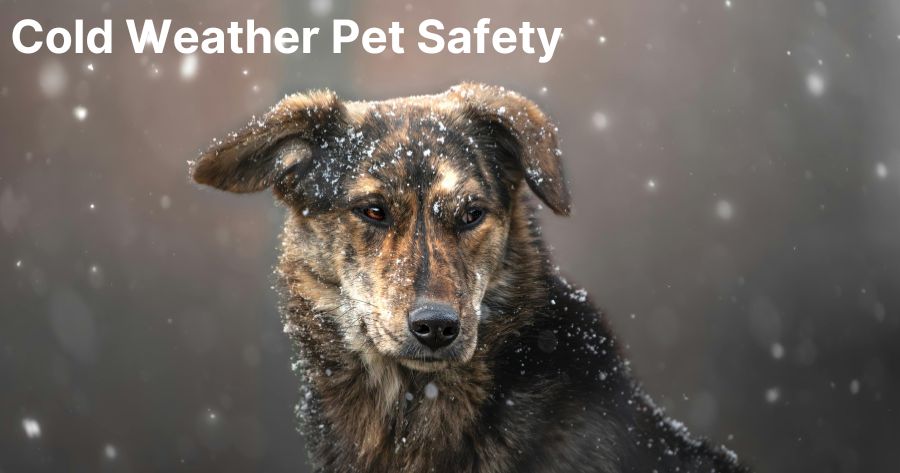
When you're snacking on a bag of marshmallows, your dog’s curious eyes might be glued to you, hoping for a taste. But before you give in to those pleading looks, you might be wondering, can dogs eat marshmallows? While marshmallows may seem harmless, they aren't the best choice for your dog. In this article, we will explore why marshmallows are not suitable for dogs, the risks associated with feeding them this sweet treat, and healthier alternatives to satisfy your dog’s cravings. For any concerns about your pet's diet, it’s always best to consult your veterinarian at Cottner Creek Pet Clinic by calling (402) 334-5975 or requesting an appointment.
Marshmallows are simple candies made primarily from sugar, water, and gelatin, and sometimes flavored with vanilla or other additives. While the ingredients seem straightforward, they aren’t as simple when it comes to your dog’s health. Let's break down why these ingredients may not be a good idea for your dog to consume.
High Sugar Content
Dogs don’t process sugar in the same way humans do, and feeding them sugary treats can lead to various health problems. Consuming too much sugar can increase your dog’s risk of obesity, dental issues, and even diabetes. Feeding your dog marshmallows, even as an occasional treat, can have long-term effects on their health that aren't immediately visible.
Xylitol: A Toxic Ingredient to Watch For
In recent years, many brands have started using xylitol, a sugar substitute, to sweeten marshmallows. While xylitol is harmless to humans, it is extremely toxic to dogs. Even a small amount of xylitol can cause a rapid release of insulin in dogs, leading to dangerously low blood sugar levels. In severe cases, xylitol ingestion can result in liver failure, seizures, or even death. Always check the ingredients before giving any human food to your dog, and if you suspect your dog has ingested xylitol, contact your veterinarian immediately.
While traditional marshmallows made without xylitol might not be toxic, that doesn’t make them a healthy option for your dog. Let's discuss what might happen if your dog eats marshmallows and what steps you should take if it happens.
Digestive Upset
Even without toxic ingredients like xylitol, marshmallows are difficult for dogs to digest. The high sugar content, combined with ingredients like gelatin, can lead to digestive upset. Your dog may experience vomiting, diarrhea, or stomach cramps after consuming marshmallows. For dogs with sensitive stomachs, the reaction can be even more severe.
Choking Hazard
Marshmallows, especially large ones, can be a choking hazard for dogs, particularly smaller breeds. Their soft and sticky texture makes them difficult to swallow, and they can easily become lodged in your dog’s throat. If you ever suspect that your dog has swallowed a marshmallow and is choking, contact your veterinarian or an emergency clinic right away.
If your dog manages to sneak a few marshmallows when you're not looking, you may not need to panic, but it’s important to take the right steps based on the situation.
Monitor for Symptoms
In cases where your dog has eaten a small amount of marshmallows without xylitol, you can start by observing them for any signs of distress. Look out for symptoms like vomiting, diarrhea, lethargy, or signs of choking. If any of these symptoms arise, contact Cottner Creek Pet Clinic at (402) 334-5975 for advice or an immediate appointment.
Seek Immediate Help If Xylitol Is Involved
If your dog eats marshmallows containing xylitol, treat it as an emergency. Even a tiny amount of xylitol can cause serious harm. Call your veterinarian or an emergency pet clinic right away. You can also contact a poison control hotline for further guidance.
While marshmallows may not be a safe or healthy treat for dogs, there are plenty of alternatives that can satisfy your dog’s sweet tooth without putting their health at risk.
Fresh Fruit
Fruits like blueberries, apple slices (without seeds), and bananas are excellent options for dogs. These fruits provide natural sweetness, fiber, and essential vitamins that can boost your dog’s health. However, always remember to feed fruit in moderation to avoid digestive upset.
Dog-Safe Treats
There are countless dog-safe treats available on the market designed specifically to meet your pet's dietary needs. Look for low-sugar or grain-free options if your dog is prone to obesity or has specific health concerns. You can find treats in various flavors, shapes, and sizes to suit your dog’s preferences.
Homemade Treats
If you love to bake, consider making your own dog-friendly treats at home. Recipes using ingredients like pumpkin, peanut butter (without xylitol), and oats are healthy and loved by many dogs. By making treats at home, you have full control over the ingredients, ensuring your dog is eating something both tasty and nutritious.
The best way to avoid any issues with marshmallows is to make sure your dog never gets the chance to eat them. Here are a few tips on how to prevent accidental ingestion.
It’s normal to feel concerned if your dog eats something they shouldn’t. Marshmallows are not a recommended snack for dogs, whether they contain xylitol or not. The high sugar content and choking hazard make them an unhealthy option, even in small amounts. However, there are plenty of healthy, dog-safe alternatives that can satisfy your dog's sweet tooth without compromising their health. If your dog eats marshmallows and you’re unsure about what to do, it’s always best to seek advice from your veterinarian. Call Cottner Creek Pet Clinic at (402) 334-5975 or request an appointment for guidance and to ensure your pet’s safety.
Closed daily from 12:30-1:30pm for lunch; Wednesdays closed from 12:30-2:30pm for lunch/meetings


